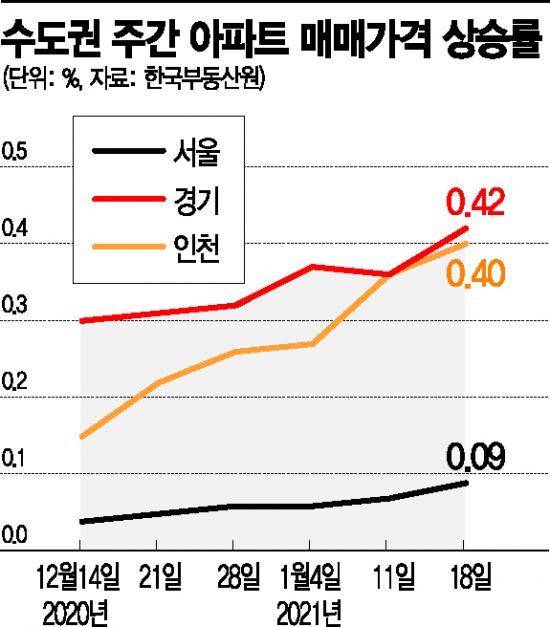‘Subscription savings, subscription deposit, subscription payment’ product can be presented
Parents and children of the same household and children must be head of household

View of apartments around Songpa and Gangnam from Maebongsan Mountain, Seoul
As apartment prices continue to rise, the dream of providing a home through subscription is becoming more and more desperate. Total housing subscription savings subscribers exceeded 25 million. The problem is that the subscription system in 2030, which is aiming for subscription, is close to’the bread of pictures’.
Currently, the total number of subscription points for the general supply is a total of 84 points, including the period of no home, the number of dependents, and the subscription period. As the number of dependents such as spouses and children increases, 5 points are added, and 2 points are added for each year of homelessness. It is a structure that is advantageous for the middle-aged and elderly. In the case of some houses in Seoul, the subscription score was perfect, and most of the winning average points in the metropolitan area were more than 60 points. This is the background of 2030’s giving up subscription and being driven to’panic buying’.
In this situation, attention is paid to how to increase subscription points at once. It is a gift of subscription passbook.
According to KB Kookmin Bank’s Real Estate Liveon on the 24th, there are a total of four types of subscription bankbooks currently in the market: ▲ subscription savings ▲ subscription deposits ▲ subscription payments ▲ housing subscription savings. Subscription savings, subscription deposits, and subscription payments were discontinued from September 1, 2015, and are now unified as housing subscription savings.
Products that can be donated are subscription savings, subscription deposits, and subscription payments, which are currently unavailable for subscription. Housing subscription savings can only be changed by changing the name of the person or by inheritance after death.
Subscription savings can be donated regardless of the subscription period. For subscription deposits and subscription payments, only bankbooks registered before March 26, 2000 are accepted.
In order to donate a subscription bankbook, the direct family member, such as spouse or child, who will inherit the subscriber’s bankbook must be changed to the head of the household. For example, if a father who has a subscription deposit registered before March 26, 2000 wants to give a subscription passbook to a child in the same household, the son must be changed to the head of the household and the father must become a member of the household. Even if the recipient of the gift is the head of the household, it is impossible to give a gift if the generation is separated. However, in the case of a spouse, a gift can be given even if the generation is separated.
There is no limit on the number of donations of subscription bankbooks, but in order to use the gifted bankbook, the existing subscription bankbook must be canceled. Deposits in the existing subscription bankbook cannot be combined with the gifted bankbook.

Although it is a rather tricky condition, the probability of winning a housing subscription can be noticeably increased if you receive an subscription passbook from parents who have a long subscription period. In the case of an office worker in their 30s, whose subscription price is only 40 points, the number of cases where the addition point rises sharply to 60 points that can win the metropolitan area comes out.
M, a 30-year-old office worker living with her spouse and two children. Both the period of no-home residence and the period of subscription to the subscription bank account are less than 7 years. Calculating M’s subscription bonus points is a total of 42, with 14 points for the period of no home (more than 6 to less than 7 years), 20 points for the number of dependents (3 persons), and 8 points for the subscription period of the subscription account (more than 6 to less than 7 years). Point. It is difficult to even expect to win the subscription in the metropolitan area, let alone Seoul.
However, if Mr. M is presented with his parents’ subscription passbook, he can get a chance. Suppose M’s parents signed up for a subscription deposit before March 26, 2000, and Mr. M received the gift. The same period of homelessness is 14 points, but with the number of dependents 30 points (5 people) and the subscription period 17 points (15 years or more), Mr. M gets a total of 61 points. This is a score worth expecting to win the subscription.
The increase in the number of dependents is due to the necessary conditions for donating subscription bankbooks. In order to receive a subscription passbook, they must be in the same household as their parents. In other words, as parents and generations joined together to receive a subscription passbook, the number of dependents increased, allowing them to increase additional points in the two items.
KB Liveon said, “Because the subscription account accounts for a large portion of the housing subscription, it is good to have it. In particular, it is important to strategically use the subscription account because it increases the additional points of the subscription at once in case of a gift or inheritance. “I said.
Reporter Kim Dong-pyo [email protected]
